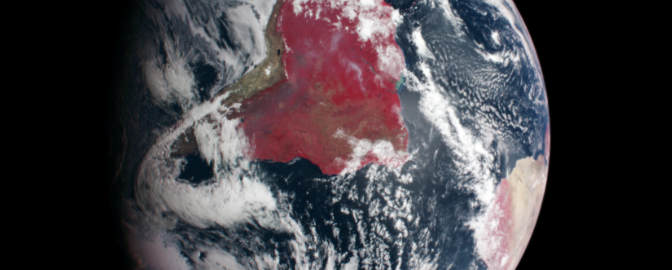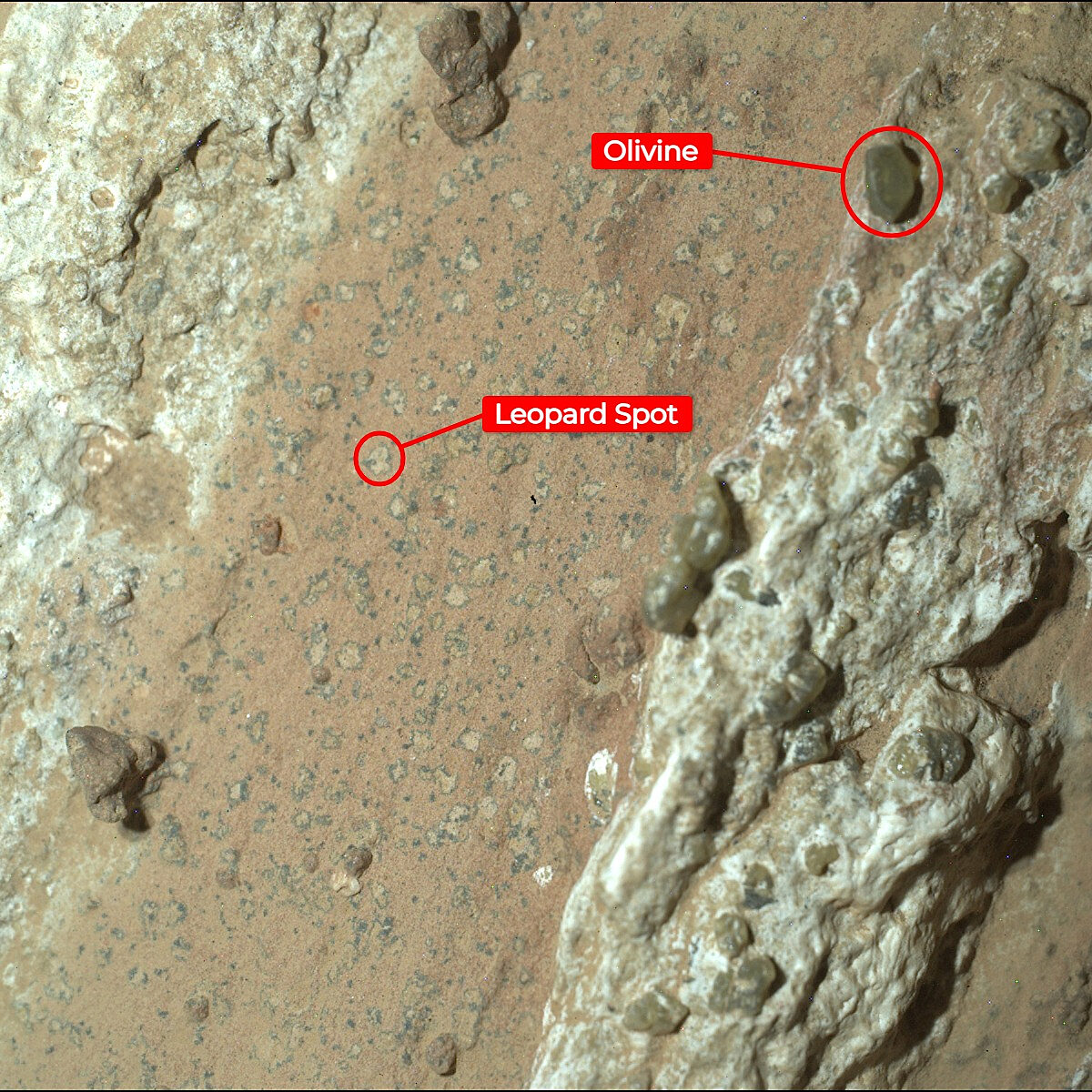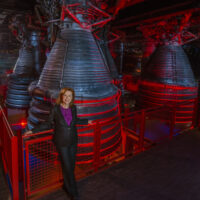Since 2002, Planetary Radio has visited with a scientist, engineer, project manager, advocate, or writer who provides a unique perspective on the quest for knowledge about our Solar System and beyond. The full show archive is available for free.
Search Planetary Radio
The Planetary Society visits TwitchCon 2025 to explore how livestreamers like Moohoodles are bringing space science to new audiences. The episode also features a Space Policy Update on Jared Isaacman’s renomination as NASA Administrator and celebrates the third anniversary of the LightSail 2 mission with Bruce Betts.
In 1996, a controversial claim of fossilized life in a Martian meteorite ignited a golden age of Mars exploration. Nearly 30 years later, a potential biosignature detected by the Perseverance rover at Jezero Crater has sparked… no major policy changes. Why? Lou Friedman joins the show to present his view.
Physicist Daniel Whiteson and cartoonist Andy Warner join Sarah Al-Ahmed to explore their new book, “Do Aliens Speak Physics?”
Historian Dagomar Degroot joins Planetary Radio to discuss his new book, “Ripples on the Cosmic Ocean: An Environmental History of Our Place in the Solar System,” which reveals how events across the Solar System have shaped life on Earth.
Planetary Radio continues its coverage from the 2025 NASA Innovative Advanced Concepts Symposium in Philadelphia, highlighting technologies that could shape future missions, from detecting exoplanet magnetospheres to exploring Venus and Saturn’s moon Enceladus with innovative robots.
Space Craze author Margaret Weitekamp of the National Air and Space Museum documents our fascination with all things space, as evidenced by the pop culture artifacts she lovingly oversees in the collection.
Planetary Radio explores visionary ideas from NASA’s Innovative Advanced Concepts Symposium. In this first of two episodes, discover how researchers are turning science fiction into reality, from glass habitats on the Moon to starshades that could reveal new Earths.
Hundreds of advocates joined The Planetary Society and partner organizations in Washington, D.C., to urge Congress to protect NASA’s science budget. Hear from Ari Koeppel, Britney Schmidt, Bill Nye, Rep. Glenn Ivey, Marcel Agüeros, Brandon Jones, and Casey Dreier about this historic Day of Action.
If the United States is indeed in a space race with China, why are we abandoning space science programs across the Solar System? This question, posed by guest Maxwell Zhu in a recent op-ed co-authored by The Planetary Society’s chief of space policy, reveals the current myopia around human spaceflight and the missing focus on a growing and ambitious new entrant into space science in the 21st century.
NASA’s Perseverance rover has found potential biosignatures in Jezero Crater’s Bright Angel formation. Host Sarah Al-Ahmed speaks with Joel Hurowitz, associate professor of geosciences at Stony Brook University and lead author of the new Nature paper, about this remarkable discovery.
Bill Nye, CEO of The Planetary Society, celebrates his new star on the Hollywood Walk of Fame and joins us to reflect on its meaning. We also receive the latest space policy updates as NASA faces significant budget challenges.
Author and historian of science Dava Sobel talks about her many wonderful books with The Planetary Society’s Mat Kaplan. Dava recently received the Society’s Cosmos Award.
Join host Sarah Al-Ahmed and Mark McCaughrean, adjunct scientist at the Max Planck Institute for Astronomy, for a tour of “111 Places in Space That You Must Not Miss”, a cosmic travel guide to the Universe.
Host Sarah Al-Ahmed speaks with Staci Horvath, outreach coordinator at NASA Goddard Space Flight Center and director of International Observe the Moon Night, and Theresa Summer, astronomy educator at the Astronomical Society of the Pacific, about the history and global impact of International Observe the Moon Night.
Atlantic writer Franklin Foer joins the show to discuss how NASA enabled the rise of Elon Musk, and, in doing so, sowed the seeds of its own decline.
Michael Roman, assistant professor at the Universidad Adolfo Ibáñez in Chile, joins Sarah Al-Ahmed to discuss new research confirming that Uranus radiates excess heat, finally resolving a decades-long mystery first sparked by Voyager 2.
What happens when pro gaming and space science collide? Kyle Hill, head of science education and outreach for the esports team BASILISK, joins us to share how the team is inspiring the next generation of scientists.
JWST has uncovered silicate clouds and a dusty circumplanetary disk in the YSES-1 system. Kielan Hoch and Emily Rickman from the Space Telescope Science Institute join us to explore what these surprising findings reveal about young giant exoplanets.
Frank White is the author of “The Overview Effect: Space Exploration and Human Evolution. “ Now in its fourth edition, the book has crystallized and expanded on the profound sense of wonder and oneness experienced by nearly all astronauts.
Star Trek actors Robert Picardo and Tim Russ join Planetary Society staff members Ambre Trujillo and Andrew Pauly at STLV, a “Star Trek” convention, to explore how “Star Trek” inspires real-world space advocacy.


 Explore Worlds
Explore Worlds Find Life
Find Life Defend Earth
Defend Earth





















